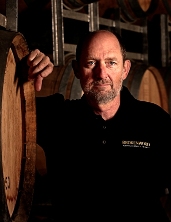By James Atkinson
Amid reports of high-end consumers snubbing screwcap closures, two of Australia's top winemakers explain why they would never consider going back to cork.
Penfolds, among other winemakers, recently confirmed its commitment to cork on its top wines because the traditional closure is still strongly preferred in export markets.
But Henscke Wines' Stephen Henschke told TheShout it's time to educate Asian, American and European consumers about the benefits of screwcap.
"I consider screwcap to be a big advantage over cork in terms of quality management of the wine maturing down the track," he said.
"Cork is just too variable, too unpredictable, it leaks and it suffers from random oxidation."
Henschke acknowledged that cork is a big part of winemaking tradition.
"But when tradition lets you down as cork has, and it's let us down to the extent where we've had to recall total products off the market because of a level of cork taint well over 50 per cent, your sense of humour runs out," he said.
"We've got men on the moon and in space stations and heading off to Mars shortly and we're still using corks in wine bottles? It doesn't quite make sense."
Brokenwood founder and wine judge Iain Riggs (pictured) said the Hunter Valley label went 100 per cent screwcap in 2002, on the back of extensive losses from sporadic oxidation.
"At five years of age we were losing anywhere between 30 and 50 per cent," he said.
"The cost to us was horrendous."
Riggs said screwcap was a "double whammy" to get rid of random oxidation as well as any problem with TCA [cork taint].
"We've had two court cases which were settled before they went to court with TCA problems over the years."
Riggs acknowledged that Asia in particular is "a very hard market to sell screwcap in".
"Particularly for a quality wine they perceive cork as being [superior]," he said.
"I don't care what people use – as long as my product is in the best possible condition when it gets to the marketplace."


50 percent I think you are exaggerating more than a little bit there I still prefer corks over screw caps as dose the rest of the world
I have never had a large number of corked wines perhaps you need re-education
stop using cheap corks !
The tide is slowly starting to turn in the European markets in regard to cork closures. We are starting to see imported wines from Spain and France now using screw cap. The problem with cork, is that even when you use High quality, more expensive product, the failure rate was still 5- 10 %. This rate elevates over time.The Henschke product looks attractive, but it would be interesting to see how its cost compares to screwcap closures. Maybe one for the Ultra Super Premium Market ? What cost do you put on the ceremony of pulling a cork ?!
With all due respect to Mr. Henschke, there is plenty of evidence that screw caps do not allow wines to age properly because they prevent any oxygen ingress, which is critical for aging. Too much oxygen, of course, is also bad for wine and has been a problem with certain plastic stoppers that don’t seal properly. Furthermore, TCA levels have rapidly been decreasing for cork products, with an average reduction rate of 83%.
And unlike biodegradable cork, aluminum screw caps aren’t easy to recycle and instead require a tedious “up-cycle” process to flatten the metal. Why would you want to disappoint not only the wine connoisseur but also the long-term well-being of the environment? For more information on wines that use natural cork closures, go to CorkWatch.
Sam, you’re clearly in the cork industry. Go on, own up.